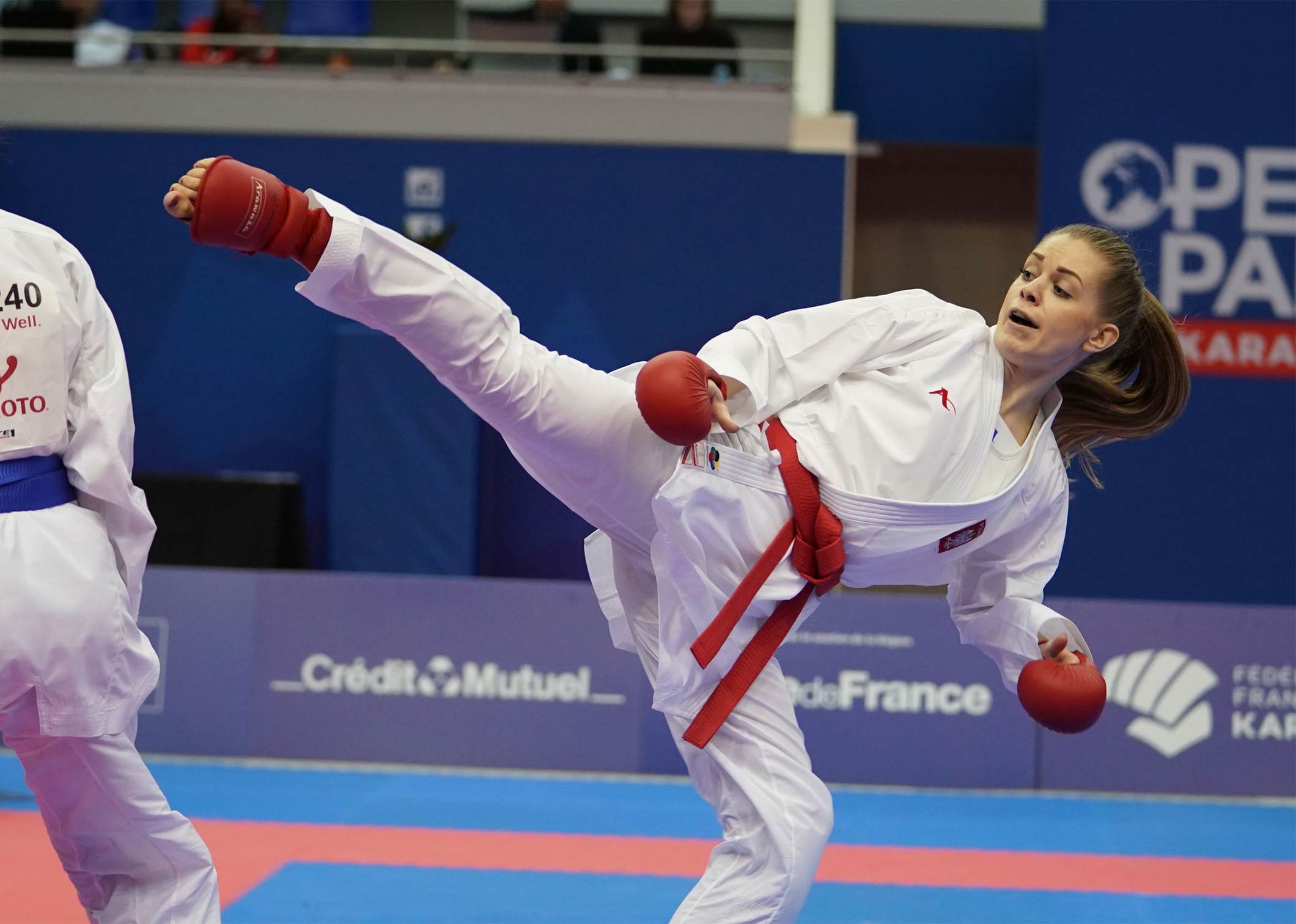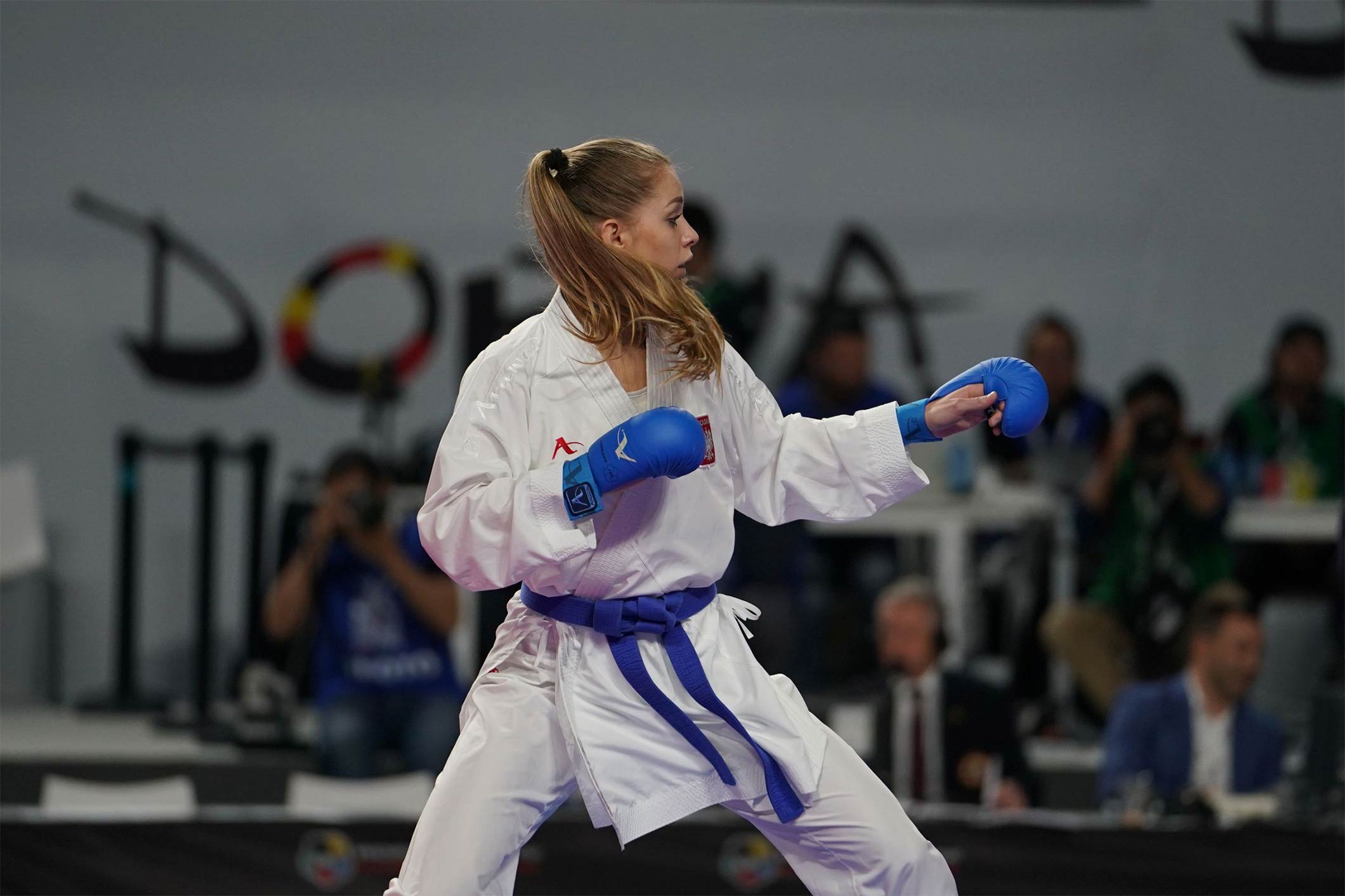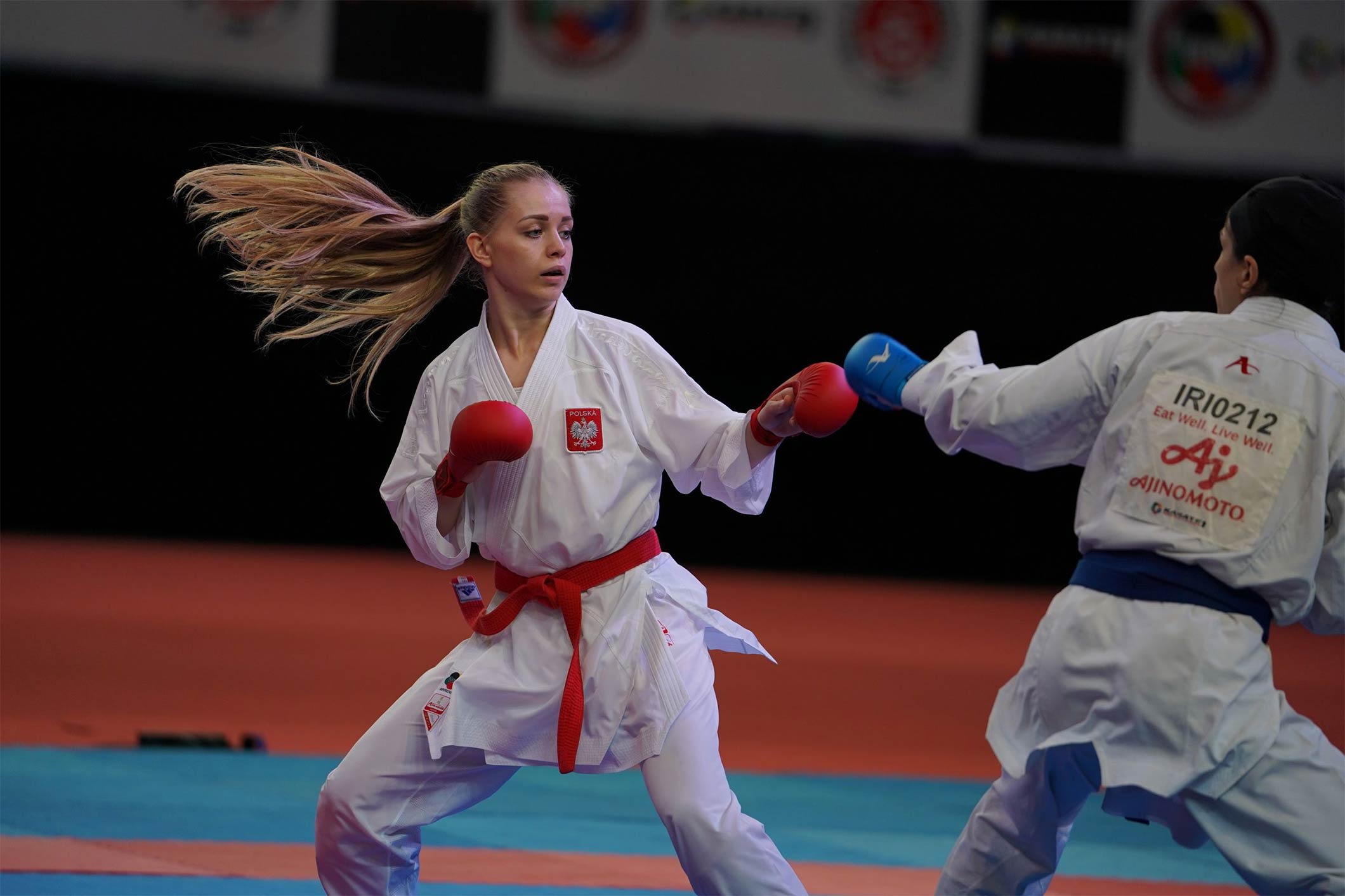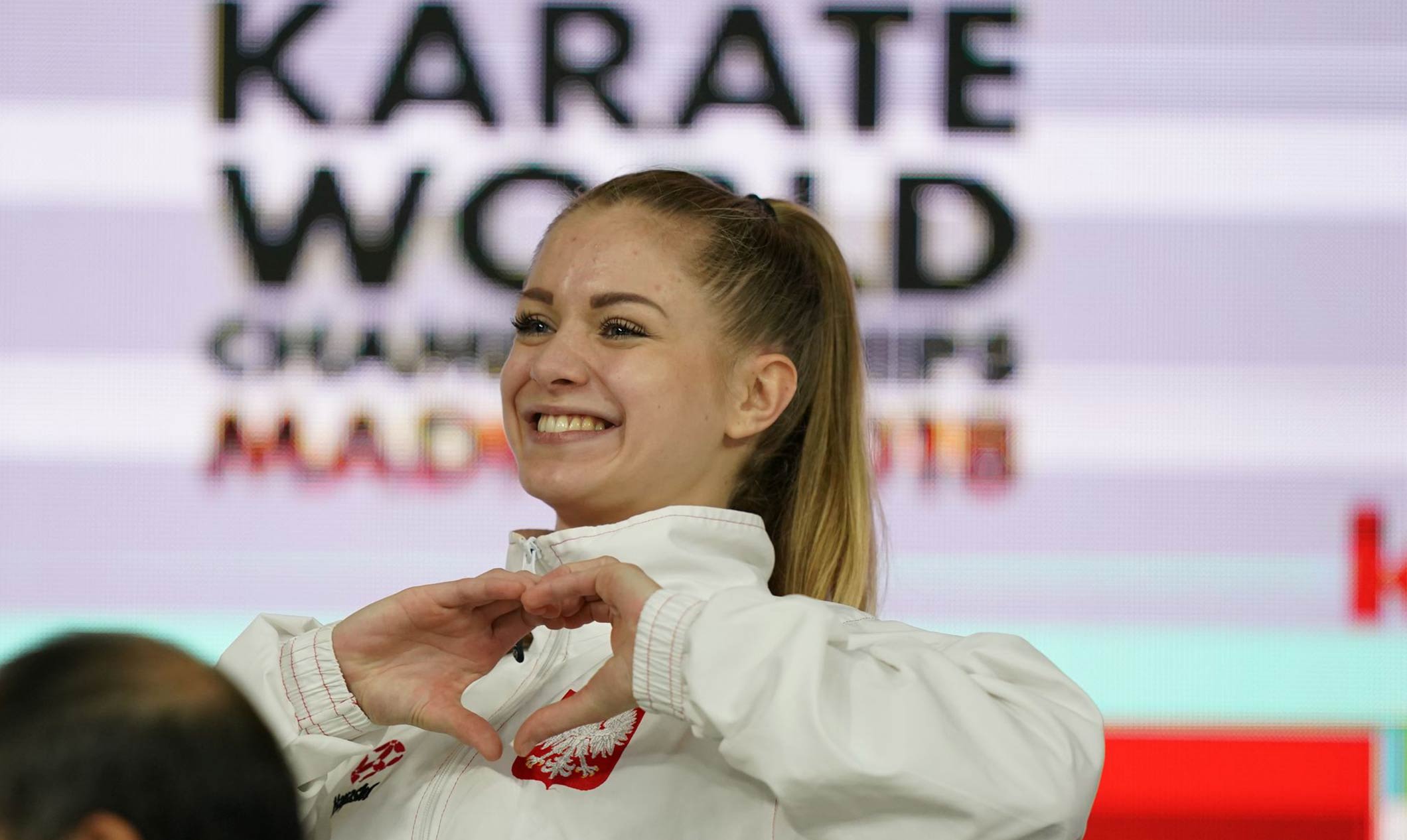On the road to Tokyo: Dorota Banaszczyk
The Polish karateka talks about her stunning win at last year’s World Championships and her excitement ahead of karate’s Olympic debut next year in the birthplace of the sport.
Dorota Banaszczyk has a habit of doing the unexpected – from silencing the boys in her class, who smirked when she took up karate aged seven, to shocking her country, Poland, by winning its first ever world title in the sport last year.
While the 22-year-old, now ranked sixth in the world rankings in the women’s kumite -55kg division, will be among the medal favourites when karate makes its Olympic debut in Tokyo next year, she was far from such at last year’s World Championships.
Entering the event in Madrid ranked 28th, she left with a gold medal and Most Valuable Player award. “It was also a great surprise for me,” Banaszczyk told olympic.org, but that was nothing compared to the reaction back home.

“For people in Poland it was a shock; my friends from the team did not believe what was going on, and it was hard to believe,” she recalls. “For the first time in the history of the World Championships, we heard our national anthem. For Poland, it was all the more exceptional [given] that the whole thing took place on the eve of the anniversary of independence.
“When it comes to karate in Poland, unfortunately we do not have the conditions for professional sports. I managed to do something from nothing – in fact alone with the coach and a small group of people. We earned this success and proved that if you want to, you can fulfil your dreams. Now we are working hard on the next step – participation in the Olympic Games in Tokyo.”
Hailing from the industrial city of Lodz in central Poland, Banaszczyk seemed destined for karate, despite the less-than-encouraging initial reactions of some of her contemporaries. “For as long as I can remember, I was drawn to martial arts,” she said. “My dad was a judoka, and I always liked to compete with my brother, who is one year younger, so when I went to my first karate class at the age of seven, it's not surprising that I liked it immediately.

“I was still in primary school. I remember that the guys from my class, who also participated in the [karate] classes, smiled [when they heard] that a girl would go to classes with them, but then during the training I showed them what I can do.”
For Banaszczyk – and karatekas around the world – 2020 will be a seminal year, when their sport finally enters the Olympic Games, and in the birthplace of the martial art. “Being at the Olympics is the dream of every athlete,” she said. “This is the most important sporting event, each of us is aware of it and would like to be part of it. Karate is a popular sport all over the world, we would like to be appreciated in some way. If our discipline was permanently attached to the Olympic programme, it would provide an injection of additional motivation for us.”
Banaszczyk has visited Japan three times, taking in Okinawa, the island prefecture which is the birthplace of karate, Kobe (for last year’s World University Championships) and Tokyo. While she says the most important thing “is just to be at the Olympics”, she admits the sport making its Olympic debut in Japan “has a symbolic meaning”.

“In Japan, karate is really developed; it had its beginnings there and everyone cares about maintaining a high level,” she says. “During the World Championships in Madrid I had to defeat the representative of Japan on my way, and I do not hide that it was one of the most difficult fights.”
Karate will be contested in two forms at the Olympic Games at Tokyo’s legendary Nippon Budokan, the spiritual home of Japanese martial arts, which hosted judo at the Olympic Games 1964, with men and women competing in both. The kata event features the demonstration of a series of movements targeting a virtual opponent, with points awarded by judges.

In kumite, rival karatekas fight each other using strikes, kicks and punches, with points awarded for form, power and control. A competitor wins if they go eight points clear during the contest (which are three minutes), or have more points at the end. If the scores are tied, the competitor who scored the first point is the winner.
“I chose kumite because I like unpredictability and every battle is different,” says Banaszczyk. “You must be faster and smarter than your opponent, you must anticipate their moves and have a plan. The dynamics, acting in the right moment and the selection of the technique, are important – without these it is hard to get points from the judges. It is cool for the viewers that anything that can happen, and there is often spectacular action.”

Banaszczyk is hoping she will once again be delivering this in Tokyo.